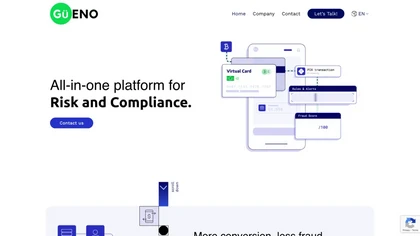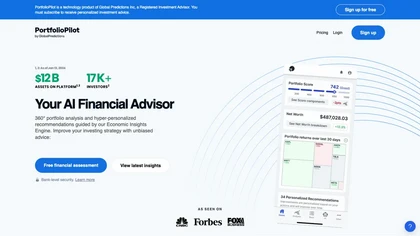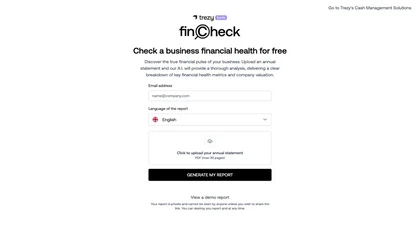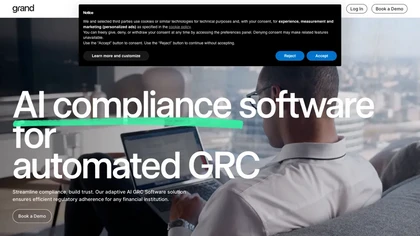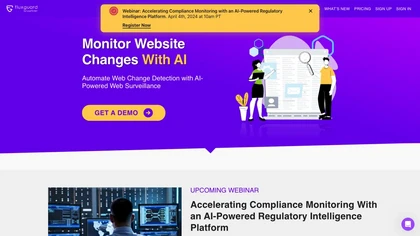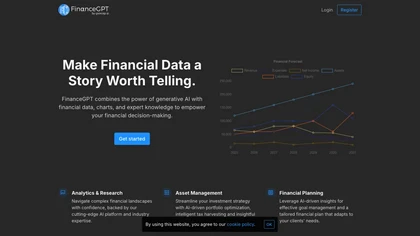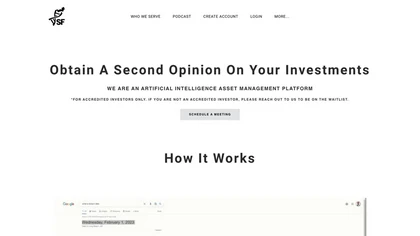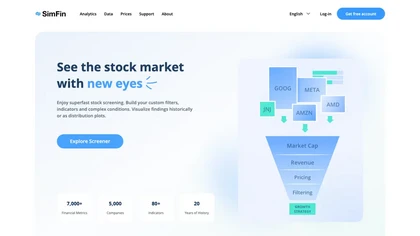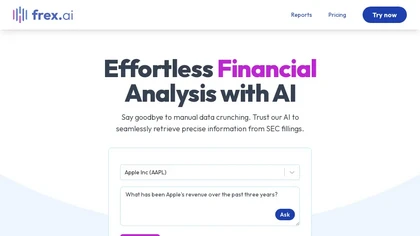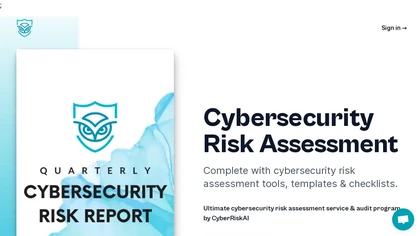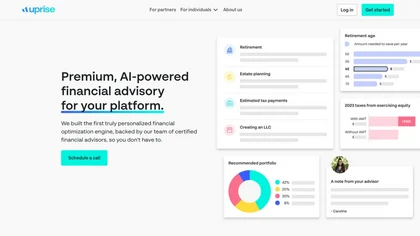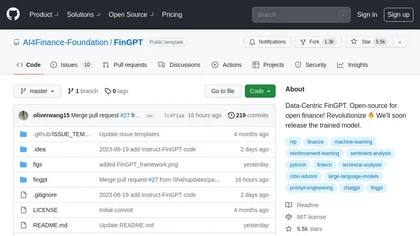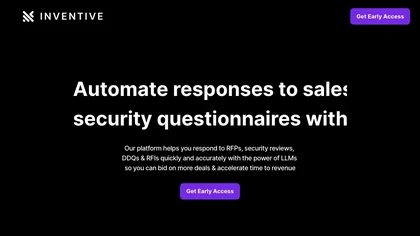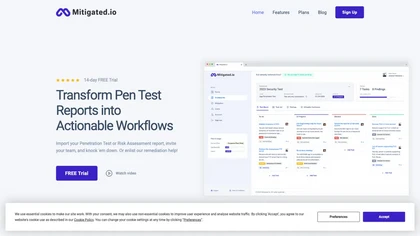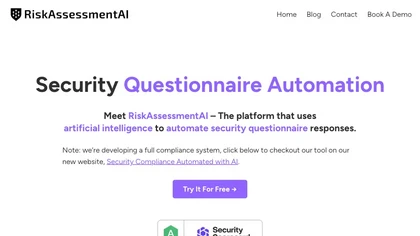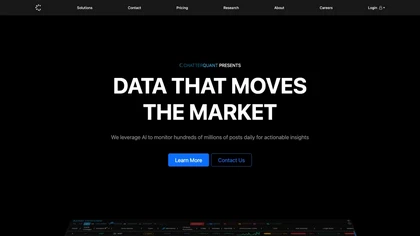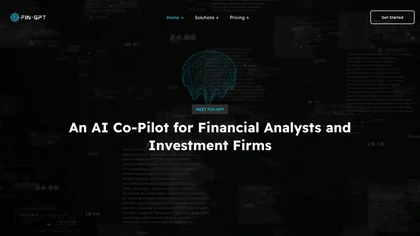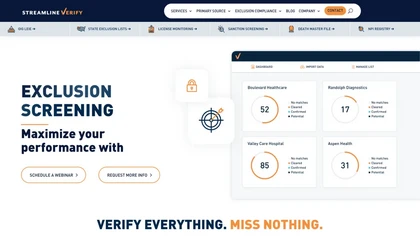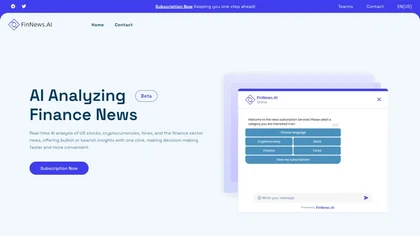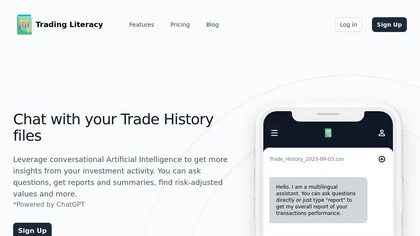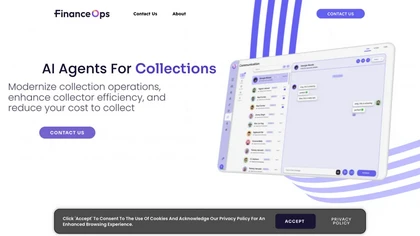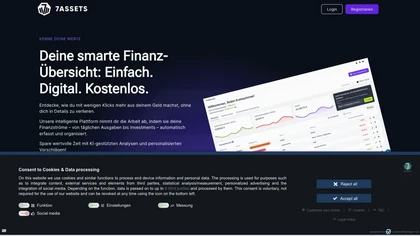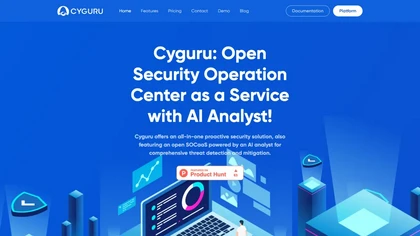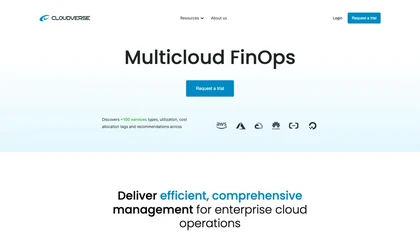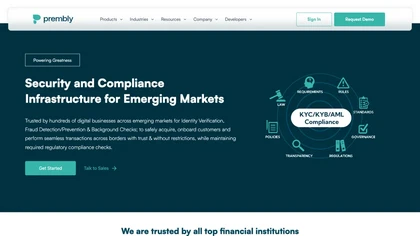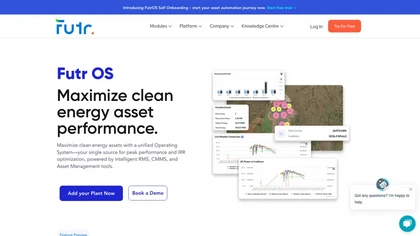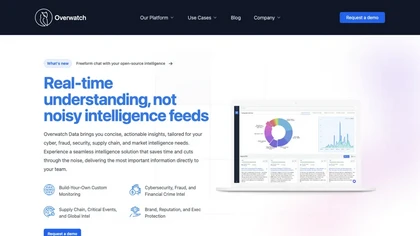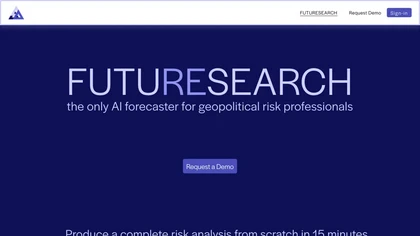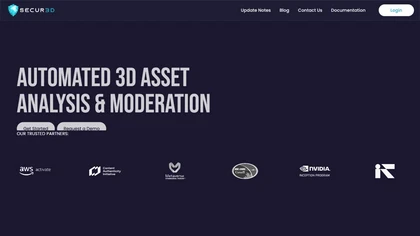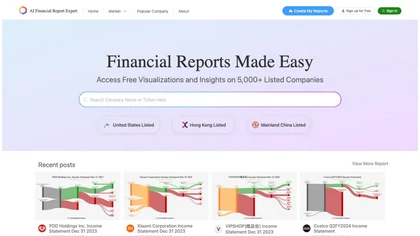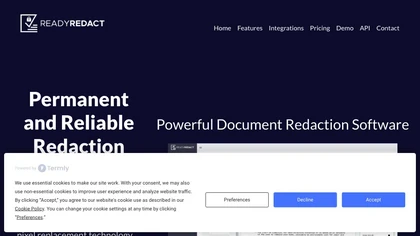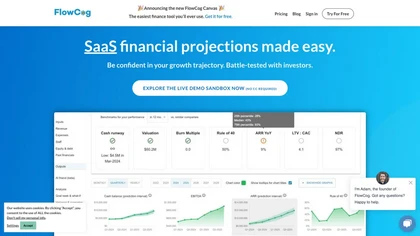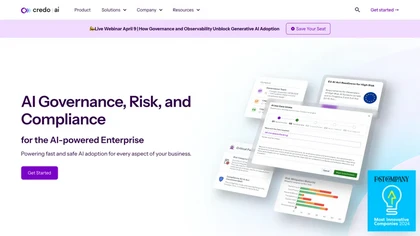AI use cases for Financial Risk Management
Generative AI can be applied in various applications for financial risk management. Here are some examples to explore below for inspiration with AI tools to get you started with using AI in financial risk management.
🛠️ 70 AI tools for Financial Risk Management
Explore a dynamic list of some of the most popular tools to get you started with various AI use cases and applications for Financial Risk Management to streamline your workflows and productivity today.
AI-FraudGuard Ecommerce features
- Contactless conversion
- Fraud prevention
- Transaction monitoring
- Compliance processes automation
- Real-time monitoring
Finalle features
- Twitter analysis
- Reddit analysis
- News analysis
- Blog post analysis
- Market insights
Flagright AI features
- Real-time transaction monitoring
- Case management
- Automated end-to-end solutions
- AI forensics for investigating suspicious activities
- Customer risk assessment automation
PortfolioPilot features
- 360° portfolio analysis
- Hyper-personalized recommendations
- Economic insights engine
- Automatic risk identification
- Bank-level security
PortfolioPilot Insights features
- Personalized investment recommendations
- 360° portfolio analysis
- Tailored suggestions based on individual portfolio needs
- Continuous monitoring of the economy for risks
- Automated investment recommendations based on asset allocations
FinCheck by Trezy features
- Financial health assessment
- Annual statements analysis
- Multilingual reports
- Privacy control
- Security features
RAFA features
- Real-time insights
- Portfolio alerts
- Risk analysis
- Options activity monitoring
- Customizable AI agents
🔥
Create your account, save tools & get personal recommendations
Receive a weekly digest of our handpicked top tools.
Unsubscribe anytime
Grand features
- Automated GRC software
- Efficient regulatory adherence
- Compliance workflows automation
- Policy and regulatory news monitoring
- Insights into regulatory changes
Fluxguard features
- Web Change Monitoring using generative AI
- Screenshots and pixel change detection
- Text change detection and network analysis
- Real-time or scheduled report dispatch
- Email reports with screenshots and text changes
FolioProjects features
- AI project management assistant
- Data-rich dashboards for analysis
- Project portfolio management workflow
- Enterprise asset management life cycle support
- Predictive, prescriptive, and generative AI capabilities
FinanceGPT features
- Generative AI technology
- Customizable financial forecasting
- Real-time data aggregation
- Advanced analytics
- Targeted towards investors, financial managers, and accountants
SageFusion features
- Trend forecasting
- Statistical models and financial statement analysis
- Risk management through portfolio hedging
- Transparent and liquid funds through Interactive Brokers
- Quick fund withdrawal within 48 hours
SimFin features
- Unlock 20+ years of financial history for 5,000+ companies
- Backtest dynamic portfolio strategies
- Visualize stock market metrics
- Customized filters and complex conditions
- Download quality financial data via API
Frex features
- Retrieve precise information from sec filings using ai
- Engage with the ai in three ways: asking questions, creating charts, and generating reports
- Extract key data from sec filings and create professional powerpoint reports
- Offer information such as earnings per share, net income, and basic diluted earnings per share for companies like apple inc.
- Real-time access to knowledge-based information available up to september 2021
Cyberriskai features
- Cybersecurity risk assessment
- Automated quarterly risk audits
- Nist cybersecurity audit framework
- Comprehensive assessment report
- Employee cybersecurity practices
Uprise Embedded features
- AI-powered financial advisory platform
- Personalized financial optimization engine
- Automating regulatory compliance
- Concierge services for comprehensive financial planning
- Flexible integration options and white-label solutions
Fama One features
- Asset management
- Portfolio optimization
- Real-time market data
- Automated trading strategies
- Risk assessment and management
FinGPT features
- Llm training
- Nlp finetuning
- Finance
Inventive features
- Streamline rfis, rfqs, security reviews, rfps
- Generate reliable answers with ai
- Reduce reliance on subject matter experts
- Save substantial time and effort
- Up-to-date content
Magnifi features
- Conversational AI guidance
- Goal planning
- Investment search
- Comparison features
- Whole-portfolio tracking
Streamlined Finance features
- Stock fundamentals analysis
- Stock filtering by volume, market cap, etc.
- Identification of undervalued stocks
- Insights on high-growth stocks and dividend stocks
- Summarization of earnings transcripts and news articles
Mitigated.io features
- Transforms penetration test risk assessment reports into actionable workflows
- Leverages collaborative workspaces for task assignment and progress tracking
- Provides AI-enriched mitigation guidance for security vulnerabilities
- Supports easy import of assessment reports
- Enables users to enlist security mitigation services directly from the dashboard
RiskAssessmentAI features
- Automate security questionnaire responses
- Scan documentation
- Build knowledge base
- Support various assessment formats
- Collaboration between teams
Mezzi features
- Personalized steps to save on capital gains taxes
- Reduce fund fees
- Optimize portfolio allocation through advanced calculators and AI-powered suggestions
- Compare performance and allocations across different accounts for easy rebalancing
- Ad-free platform prioritizing data privacy and security
Kniru: AI-Powered Finance features
- Hyper-personalized financial management
- Precise and actionable insights
- State-of-the-art notifications
- Seamless connections to multiple accounts globally
- Anomaly detection for your portfolio
ChatterQuant features
- Enterprise dashboards
- Real-time data access through APIs and embeds
- REST WebSocket APIs (upcoming)
- APIs for interaction and read access
- Track mentions of stocks and crypto tickers on social media platforms
Moning features
- Global view of wealth management
- User-friendly dashboard for asset tracking and management
- AI analysis for investment strategy enhancement
- Dividend anticipation and tracking tools
- Access to exclusive dividend growth and safety scores
FIN-GPT features
- Data consolidation from various sources
- Affordable access to advanced tools
- Real-time data analysis capabilities
- User-friendly interface
- Enhanced decision-making through data-driven insights
Gamma.ai
4.8Gamma.ai features
- Continuously monitors employees
- Notifies of security mistakes
Shufti Pro features
- Kyc/aml compliance
- Real-time identity verification
- Customer drop-off prevention
- Global business applicability
Streamline Verify features
- Screening against various databases including OIG LEIE, state exclusion lists, license monitoring, sanction screening, death master file, and NPI registry
- One-stop portal for quick identification and resolution of compliance screening issues
- API integration for future compliance needs
- Enhances efficiency in executing exclusion screening and credential management
- Trusted by over 10,000 establishments
FinNews.AI -FREE features
- Real-time insights
- Quantitative analysis
- Predictive modeling
- Instantaneous analysis
- Anomaly detection
Trading Literacy Bot features
- Upload csv or pdf transactions list
- Personalized assistant
- Answer trading and investment questions
- Generate reports
- Measure metrics
SmartTrust.io features
- Fraud detection using AI
- Intention calculation analytics
- Support for popular blockchains like Ethereum, Polygon, and BSC
- Extensive wallet analytics generation
- Telegram integration for accessing the platform and premium features
Composer features
- Ai-powered strategy creation
- Automation
- Portfolio rebalancing
- Customizable and modifiable strategies
- Historical allocation graphs
Inc. features
- Real-time global threat assessment
- Continuous monitoring and analysis of vast data sources
- Actionable intelligence delivery
- Comprehensive insights into evolving threats
- Integration of advanced data analytics, machine learning, and predictive modeling
Ferret features
- Due diligence
- Relationship intelligence
- Risk avoidance
- Opportunity spotting
- Information access
Hacker AI
4.6Hacker AI features
- Source code scanning
- Security weakness identification
- Potential exploitation detection
- Hacker targeting prediction
- Malicious actor analysis
FinanceOps features
- Modernize collection operations
- Enhance collector efficiency
- Assign collections automatically
- Utilize AI-powered worklists, payments, and messages
- Integrate with leading ERP solutions
Dark Pools AI features
- Financial crime detection
- Anomalous behavior detection
- Data mapping
- Machine learning
- Data visualization
Deborah features
- Web-based
- Free over-the-phone updates
- JavaScript enabled
- 3-minute portfolio digest
- AI financial analyst
7Assets features
- Automated data capture
- AI-powered analyses
- Personalized suggestions
- Secure data management
- All-in-one asset management
Cyguru features
- Cloud-based AI security operation center (SOC)
- AI-powered attack detection
- Continuous monitoring for vulnerabilities and misconfigurations
- Compliance with essential security standards (GDPR, PCI DSS, NIST)
- ML and AI detection capabilities for identifying anomalies and suspicious activities
hCaptcha features
- Comprehensive security platform
- Instant detection and deterrence of human and automated threats
- Easy deployment with universal support
- Advanced security measures against various threats
- Privacy and compliance features to meet global standards
FinanceGPT Chat features
- Build custom AI co-pilots
- Semantic search for understanding
- Document upload for tailored answers
- Data source connectivity
- Personalized financial insights
CloudVerse.ai features
- Optimized billing
- Asset management
- Cost variances analysis
- Anomaly detection
- Savings recommendations
QnA3 features
- Tailored for the crypto industry
- Advanced data analysis capabilities
- Tracking and managing credits, airdrops, and mining activities
- User-friendly documentation and insightful statistics
- Next-generation features for comprehensive industry landscape view
Quick Intel features
- AI-powered scam detection in the cryptocurrency space
- Discord/Telegram scanner bot for in-depth analysis
- Scan tokens, NFTs, and contracts for potential risks
- Enhance safety standards for developers in the crypto sphere
- Exclusive safety features for token holders
Fortune features
- Automated transaction categorizations
- Detailed financial analytics
- Forecasting finances across various banks worldwide
- Real-time alerts for every transaction
- Advanced transaction search capabilities
Prembly features
- IdentityPass
- IdentityRadar
- Background Check
- IdentityForm
- 100+ APIs
FutrOS features
- Unified operating system
- Warranty management
- Digital twin technology
- Automated performance insights
- Real-time alerts
Overwatch Data features
- Real-time intelligence platform
- Actionable insights tailored to various needs (cybersecurity, fraud, security, market intelligence)
- Custom monitoring capabilities for cybersecurity, financial crime intel, and brand reputation management
- Coverage of social media platforms in over 15 languages, news sources, deep web, and dark web crime-focused telegram channels
- Intuitive data visualizations, category breakdowns, and real-time executive summaries
Futuresearch features
- Comprehensive risk assessments in 15 minutes
- Five-stage AI-powered workflow
- Daily analysis of new scenarios
- Search scenarios based on daily news
- Simulate future outcomes with accurate predictions
Facia features
- Face recognition
- 3d liveness detection
- Liveness detection technology
- Versatile applications
- Secure data storage
- Robust apis
- Ios and android compatibility
- Existing system integration
- Detailed documentation
- 24/7 support
Secur3D features
- Automated 3D asset analysis
- Geometry and texture analysis for IP protection
- Detection of art theft and brand infringement
- Content categorization and marketplace description generation
- Support for asset comparison and texture matching
Tendi features
- AI-powered personal financial advisor
- Assists in setting financial goals, planning, budgeting, and achieving milestones
- Analyzes spending, saving, and investing behaviors
- Provides actionable insights and personalized financial advice
- Ensures data security through advanced encryption and strict privacy protocols
AI Financial Report Expert features
- Create insightful and visually appealing financial reports for over 5,000 listed companies
- Access to free visualizations and insights
- Generate reports for popular companies across different industries
- Provides detailed income statements, cash flow statements, and other financial data
- Explore recent posts and insights on specific companies like Xiaomi Corporation, Li Auto Inc., and Apple Inc.
Verificient features
- AI-powered tools for online identity verification and monitoring
- Proctortrack for secure remote proctoring
- Biometrics, computer vision, and machine learning capabilities
- Continuous identity verification and remote monitoring
- Live proctoring with AI and automated remote proctoring
QuillAI features
- Document parsing
- SEC alerts
- Financial model generation
- Custom PDF uploads
- Multi-document AI chat
ReadyRedact Document Redaction features
- Redacting
- Documents
- Privacy
- Data protection
- Compliance
- Gdpr
- Ccpa
- Lgpd
- Popi
- Hipaa
Vigilocity features
- Utilizes bespoke training data
- Tracks, monitors, and disrupts threat actors
- Provides near instant notification of fraudulent domain registrations
- Prioritizes confirmed security breaches based on material impact
- Empowers security, audit, and regulatory teams with valuable insights
Digits — Accounting features
- 24/7 automated bookkeeping
- AI Advisor for financial analysis & insights
- Intuitive Reports for non-finance professionals
- Live Finance Dashboards for easy business monitoring
- Bank-grade Security for data protection
Lendal Copy features
- Full automation of trading portfolios
- Algorithmic trading capabilities
- Advanced algorithms for technical analysis
- Reduction in trade analysis time by 90% using AI
- Allows users to compete with institutional trading firms
Equixly features
- Continuous scanning of APIs for security vulnerabilities
- Detection and fixing of security issues in development process
- Scalable API pentesting capabilities
- Mapping of attack surface and inventory of API landscapes
- Transparent compliance reporting model
FlowCog features
- User-friendly Flowcog Canvas for financial projections
- AI-driven inputs for streamlined modeling process
- Support for integrations with QuickBooks and Stripe
- Detailed financial statements and saas metrics
- Simulation analysis and data visualization dashboards
Greenifs.ai features
- Detect greenwashing errors
- Ensure compliance with green marketing guidelines
- Check social media content for compliance with region-specific regulations
- Offer targeted corrections and recommendations
- Help avoid legal issues related to environmental laws
CreditHQ features
- Analyze credit history
- Compare interest rates
- Tailored loan offers
- Credit score simulator
- Zero-coding development environment
RhinoWatchlist features
- Research stock trends
- Manage watchlist
- Provide insights on individual stock movements
- Global financial trends analysis
- Personalized analytics
credo.ai features
- AI auditing for building trust in AI systems
- Generating governance artifacts to showcase well-governed AI/ML systems
- Enables collaboration, evidence gathering, and risk evaluation
- Alignment with global regulations and industry standards
- Empowers organizations to advance responsible AI adoption at scale
